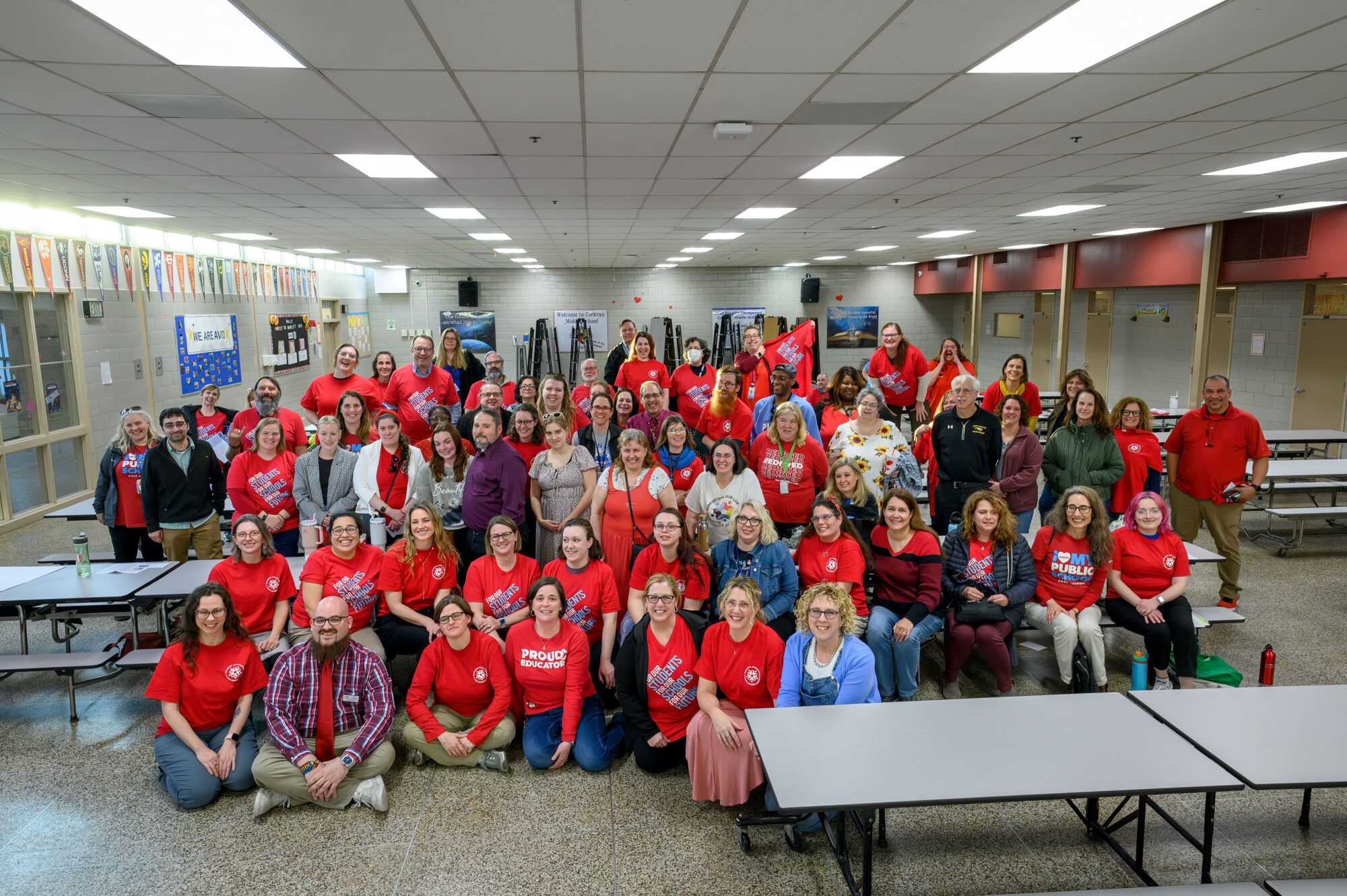Arbitration
A process for resolving disputes or bargaining impasses where an outside, neutral arbitrator determines if there was a violation of the collective bargaining agreement (grievance arbitration) or decides the outcome of contract issues that were not settled at the bargaining table (interest arbitration).
Bargaining Rights
The legal authority of a union to negotiate a collective bargaining agreement. In Maryland, unions are entitled to negotiate wages, hours, and working conditions on behalf of bargaining unit employees.
Closed Negotiations
According to Article 22 of our Negotiated Agreement, “The content of negotiations discussions shall be regarded as confidential. There shall be no public announcement or press releases on the content of negotiations discussions prior to the (1) successful conclusion of negotiations or (2) impasse being declared by the Maryland Public School Labor Relations Board, unless by mutual agreement. The above provision shall not prevent the Board team from seeking guidance from the Board and staff or the
TAAAC team from seeking guidance from its members.”
Collective Bargaining/Negotiated Agreement (or Contract)
The resulting legal, binding agreement that codifies the language that was agreed upon in collective bargaining. It becomes effective after union members ratify the tentative agreement.
Exclusive Representation
When a group of employees organize for the purposes of collective bargaining, they elect or authorize a union to represent them in contract negotiations, grievances, and other employee and labor relations matters. For an association to become the exclusive representative, it must be certified by the labor board and/or formally recognized by the employer. TAAAC was recognized as the exclusive representative for AACPS Unit 1 employees in 1968.
Grievance
Generally, a violation of the collective bargaining agreement where a formal written complaint is filed with the employer by the grievant(s) (employee or association). According to Article 19 of our Negotiated Agreement, “A “grievance” is a dispute concerning the meaning, interpretation or application of provisions of this negotiated Agreement concerning the salaries, hours, or working conditions of Unit I members.” If unable to resolve at an early step in the process, the dispute is typically resolved in binding arbitration.
Impasse
A stalemate in collective bargaining negotiations typically triggers a mandatory dispute resolution or impasse procedure. In Maryland, the following steps occur:
- Impasse begins with the Union or the Employer files, or the parties file jointly, a “Request for Determination that an Impasse in Negotiations Has Been Reached” with the Public School Labor Relations Board and the parties exchange “last and best final offers”.
- If the PSLRB finds that impasse has been reached, the parties must select a mediator within 5 days of the determination date or begin the selection process (Selection is made by agreement or alternate striking from a list.).
- Within ten (10) calendar days after the Determination Date, the parties shall file with the PSLRB the “last and best offer” as to each of the Matters in Dispute.
- Within fourteen (14) calendar days after the Determination Date, the parties shall “commence mediation”, which means that the parties have selected a mediator and they have agreed to serve. The parties select a date to meet with the mediator. The mediator shall conclude the mediation within 25 days after the first mediation session.
- If the parties to not settle during mediation, the mediator issues a written offer to both parties. Within 5 days after the reciept of the Mediator’s proposed settlement, each party
shall notify the Mediator of its intent to: accept the Mediator’s proposed settlement, accept the Mediator’s proposed settlement in part, as mutually agreed to by the parties, or decline the Mediator’s proposed settlement and request arbitration before the PSLRB
Public School Labor Relations Board (PSLRB)
The impartial government agency responsible for administering and enforcing the collective bargaining law. The labor board oversees and administers bargaining impasse procedures, and decides on unfair labor practices and other proceedings under the bargaining law.
If the negotiations teams request arbitration before the PSLRB, the following steps occur:
- Within 5 calendar days, the PSLRB will set a date for an arbitration hearing.
- The PSLRB shall open the arbitration record within 20 days after receiving either party’s decision to decline the Mediator’s proposal.
- The PSLRB shall convene a hearing; hear testimony; issue subpoenas as necessary; and receive, hear and consider all evidence considered relevant by the PSLRB.
- Within 20 days after the arbitration record is opened, the PSLRB shall issue a written order that selects and adopts: the complete final offer of the Union, the complete final offer of the employer, the Mediator’s final offer of settlement
Memorandum of Understanding (MOU)
A signed agreement that can be either a stand-alone agreement or a supplement to the existing collective bargaining agreement.
Ratification
The formal process in which union members vote to approve the newly negotiated tentative agreement. (The employer must approve the tentative agreement as well through its own approval process).
Tentative Agreement (TA)
An agreement reached by the union and employer bargaining teams. Both sides must ratify the TA before it can become effective. The terms of the existing collective bargaining agreement that are not affected by the TA remain in full force and effect.
Unfair Labor Practice (ULP)
A violation of the collective bargaining statute. A bargaining law gives employees the right to join a union and engage in union activities without fear of retaliation for doing so. It also requires unions and employers to bargain in good faith. ULPs are filed with the labor board, which determines if rights were violated or if duties and obligations were not met.

